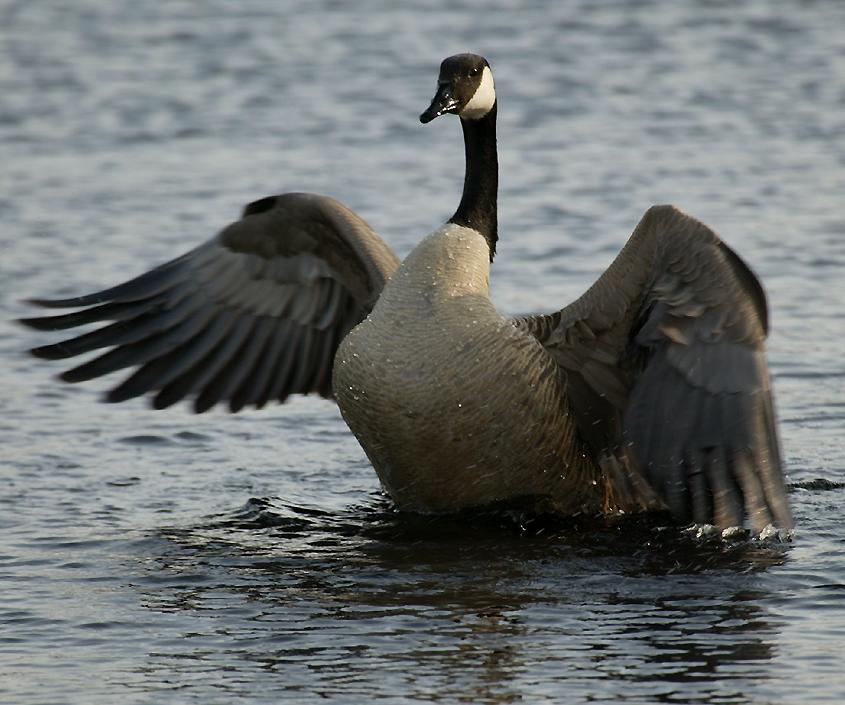
DNR to present Canada goose management seminars next month
If Canada geese have become a problem on your property, attend one of six seminars being presented in March by the Department of Natural Resources' Urban Wildlife Project.
The seminars will cover various aspects of Canada goose management, including relevant laws, basic biology, and methods to control goose damage. A demonstration on the proper techniques for egg and nest destruction will follow. Adhering to proper techniques is vital—if eggs are broken or completely removed from nests, the females will just lay another clutch of eggs.
The population of Canada geese in the Mississippi Flyway exceeds 1.5 million birds. Destroying eggs and nests in urban areas is helpful in controlling these numbers in areas where hunting cannot, which can reduce conflicts with people and Canada geese.
Federal rules allow landowners properly registered at https://epermits.fws.gov/eRCGR/geSI.aspx
to complete Canada goose egg and nest destruction on their own property. Registrants must provide a summary report of their Canada goose nest destruction activities to the U.S. Fish and Wildlife Service by Oct. 31. Failure to report can result in privileges being revoked for the forthcoming year.
The first seminar is March 8 at the Community Center in Clarksville. Seminars also will be held March 10 at Recreation Building 701 inside Fort Harrison State Park in Indianapolis, and on March 11 at the Delaware County Fairground’s Heartland Hall in Muncie.
Other opportunities to attend the seminar will be March 22, at the Salomon Farm Visitors Center in Fort Wayne; March 23, at the Potato Creek State Park Nature Center near North Liberty; and March 24 at the Lake County Extension Service Office in Crown Point. All seminars run from 9:30 a.m. to approximately noon. All interested landowners, managers of corporate campuses, golf course or park employees, and the general public are invited.
The classes are free, and no registration is required. For further information, call the Urban Wildlife Biologist, (812) 334-1137 or e-mail swinks@dnr.IN.gov.
For more information: Marty Benson, DNR assistant director of communications, (317) 233-3853, mbenson@dnr.in.gov.
Comments